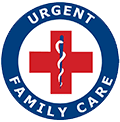An allergic reaction happens when your body’s immune system begins producing antibodies against a foreign substance, such as dust, pollen, or a certain food or medication.
The severity of an allergic reaction varies from person to person. Most allergic reactions are mild, but a severe allergic reaction can be life-threatening. Seek medical attention immediately for a severe rash, shortness of breath, swelling of the air passages, or symptoms of shock. See Anaphylactic Shock below.
Allergy Causes and Symptoms
Some allergy symptoms appear immediately. Other symptoms only appear over time, after repeated exposure. Allergy symptoms depend on the substance that triggered the allergic reaction:
Airborne substances like dust, pollen, pet dander, dust mites
- Congestion
- Runny nose
- Itchy, red and swollen eyes
- Hay fever
- Sneezing
Food allergies to certain foods, such as shellfish, nuts, chocolate, strawberries, or mangoes
- Tingling mouth
- Swelling of lips, tongue, face or throat
- Hives
Allergies to insect bites
- Swelling around the sting site
- Itching or hives
- Cough, tightness in the chest, wheezing, and shortness of breath
Medication allergies
- Hives, itchy skin
- Rash
- Facial swelling
- Wheezing
Allergies to latex, metals, detergents and soaps
- Itchy skin
- Rash
- Eczema
Treatment for Allergies
Urgent Family Care provides prompt relief and treatment for allergies in Knoxville without a previous appointment.
Allergy symptoms can be relieved with over-the-counter antihistamines and itching cream. In severe cases, a doctor might prescribe steroids, cortisone cream, or a stronger medication. However, to prevent the allergy symptoms from coming back, you must identify and avoid the substance that triggered the allergy.
Anaphylactic Shock
Anaphylaxis, a severe and potentially life-threatening allergic reaction, can be triggered by any of the substances mentioned above. The reaction can lead to a sudden drop in blood pressure and restriction of the airways.
Symptoms of anaphylactic shock appear within minutes or seconds after exposure to an allergen:
- Constriction of the airways and a swollen tongue or throat, that results in difficulty breathing
- A drop in blood pressure resulting in dizziness, fainting or shock
- A weak and rapid pulse
- Hives and widespread itching
- Flushed or pale skin
- Nausea, vomiting or diarrhea
Treatment for anaphylactic shock is an injection of epinephrine (adrenaline).
If you or someone you are with has symptoms of anaphylactic shock, seek medical attention immediately. Ask the person if they are carrying an EpiPen or allergy medication, and administer it right away. Keep them warm and comfortable.
If you have any concerns about allergy symptoms or an allergic reaction, come to Urgent Family Care in Knoxville.
